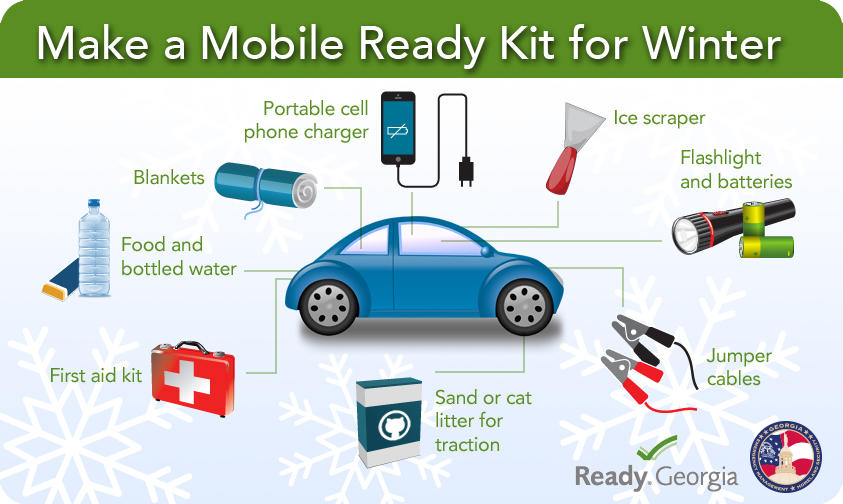
Be Informed: Winter Weather Driving
Minimize travel during winter weather. If you can postpone your trip or if it is non-essential, stay in when the weather is really bad. If you don’t have somewhere you have to be, watch the snow from indoors.

If You Must Drive:
- Maintain at least a half tank of gas during the winter season.
- Keep an extra Ready kit in the trunk of your car. In addition to the basic essentials, consider adding a portable cell phone charger, ice scraper, extra blanket, sand for traction and jumper cables.
- Follow directions from local officials about driving during snow and ice storms, and drive with caution.
- SLOW DOWN to at least half your normal speed and use a low gear as you drive.
- Don’t stop going up a hill. Get some inertia going on a flat roadway before you take on the hill.
- Do not use cruise control and avoid abrupt steering maneuvers.
- Be mindful of road crews working to clear the snow and ice from the roadway.
- Motorists should not pass a dump truck spreading the salt/gravel mixture, as gravel may bounce up and could break windshields. Follow at least 100 feet behind all vehicles.
- If you come to a traffic signal that is not working, treat it as a four-way stop.
- Beware of black ice, especially on bridges, overpasses and shady areas. Four-wheel-drive may help your vehicle get going in the slushy stuff, but it’s of no use when you’re trying to steer or safely stop on a slippery road surface.
- Watch for fallen trees or power lines.
- If at any point during your trip you feel that the weather is too bad to continue driving, simply stay put.
Stopped Or Stalled?
- Remain in your vehicle where rescuers are most likely to find you. Do not set out on foot unless you can see a building close by where you know you can take shelter.
- Don’t idle for a long time with the windows up or in an enclosed space.
- Run the engine and heater about 10 minutes each hour to keep warm and to conserve your battery and gasoline. When the engine is running, open a downwind window slightly for ventilation and periodically clear snow from the exhaust pipe. This will protect you from possible carbon monoxide poisoning.
- Exercise to maintain body heat, but avoid overexertion.